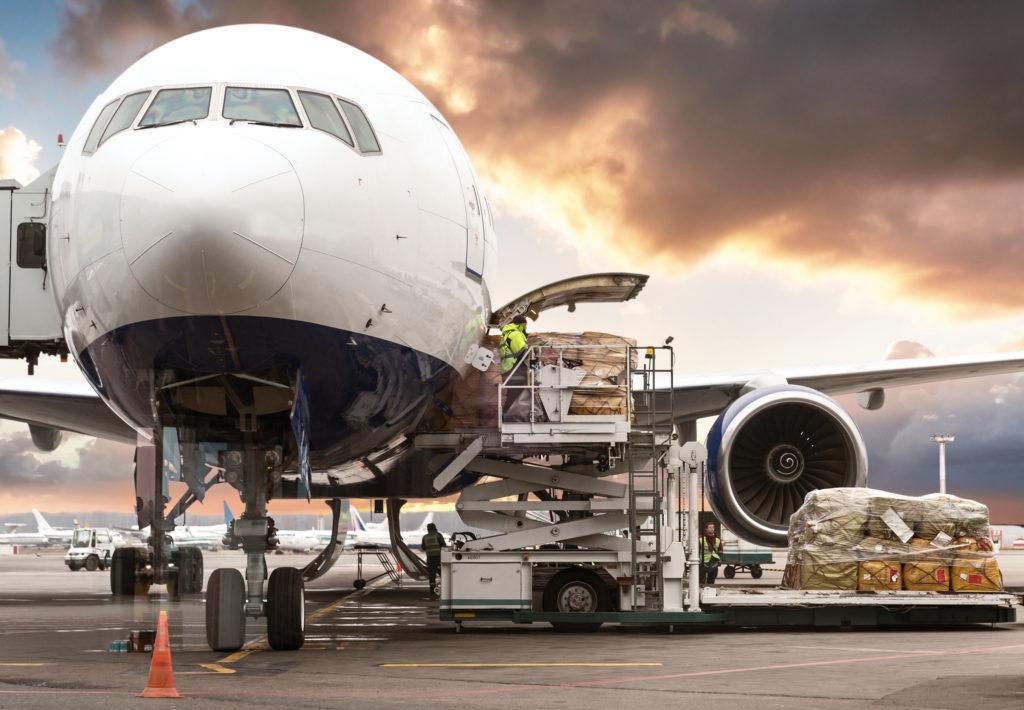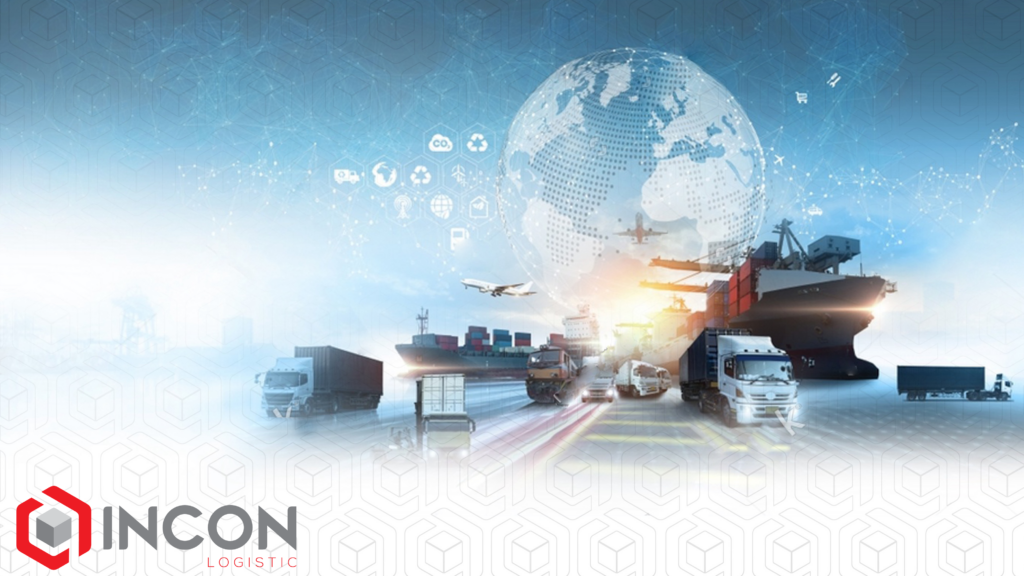Do you know how air transportation works?
As we know, air transportation plays a significant role in the business world, as it offers fast and reliable solutions for international freight transportation. Air transport allows goods to reach their destination as quickly as possible, thereby enhancing the competitiveness of companies. Additionally, it reduces shipping times and contributes to the development of global trade, enabling businesses to operate efficiently and enter the market.
The mission of INCON-LOGISTIC Ltd. is to facilitate global trade for our clients with innovative services and to provide appropriate answers to any questions they may have.
The Basics of Air Transportation
What is air transport? It is a logistical process that enables the transportation of goods and passengers by air. This is particularly important in global trade, as it provides fast and reliable solutions. Think of the numerous industrial raw materials, or even something smaller, like one of your own Amazon orders.
Air freight can be divided into three main categories: cargo, passenger, and express transportation. Cargo transportation aims to transport goods, including various products, raw materials, and industrial equipment. Passenger transportation focuses on the transportation of people, while express transportation was created for the fast delivery of urgent shipments.
Additionally, companies engaged in air freight can be categorized into two groups: cargo specialists and general-market operators.
Cargo specialists operate exclusively cargo aircraft. These companies are strong competitors in market niches with specific requirements, such as the transportation of oversized or temperature-sensitive goods.
General-market operators, on the other hand, are combined service providers that transport both passengers and cargo. The cargo capacity of passenger flights is roughly half of the load factor of dedicated freighter aircraft.
The Process of Air Transportation:
The process of air transportation begins with placing an order, where the customer provides details about the goods to be shipped. Following this, the appropriate packaging and necessary documentation, such as the air waybill, are prepared. The packages are then transported to the designated airport, where customs clearance is carried out. During air freight, the goods are transported with the chosen airline, and after arriving at the destination, customs clearance is conducted again. The final step is delivery, where the shipments reach the recipients. Due to the speed and reliability of air transportation, it is essential in the modern business world and contributes to the development of global trade.

Is Air Freight Better than Sea Freight?
The air freight industry is significantly smaller than sea freight in terms of volume. In 2021, the global maritime industry transported about 11.1 billion tons of goods, while air freight accounted for 60.9 million tons. Global sea trade consists of 86% raw materials and other bulk products, which are generally low value, non-time-sensitive, and transported using specialized vessels. These goods cannot be directly compared to the high-value, dry goods associated with air transport. Although air freight represents less than 1% of global trade volume, due to the high value of the transported goods, it accounts for approximately 35% of the value of goods transported globally.
For more information, click here.
What are the Advantages of Air Transportation?
Air transportation comes with several advantages that significantly contribute to modern business operations. You can read more about this in our blog titled “Transportation of Lithium-Ion Batteries in International Shipping.”
Speed: Air freight is one of the quickest ways to send goods, allowing businesses to respond to market demands. Shorter shipping times help reduce inventory levels, thereby lowering storage costs and increasing efficiency.
Global Reach: Air freight enables companies to enter global markets regardless of geographical distances. This is especially important in international trade, where the quick delivery of products is crucial for competitiveness.
Safety: Air transportation is exceptionally reliable, as airlines implement strict security measures. Goods are transported under the best possible conditions, reducing the risk of damage or theft. The high standards mandated by aviation authorities ensure that shipments arrive safely and on time at their destinations.
Challenges in Air Transportation
Companies face several challenges that can significantly impact their business decisions. One of the biggest issues is related to high costs. Air freight fees are generally significantly higher than those of other transportation modes, so companies must carefully consider when and to what extent they utilize this solution. Additionally, airlines often charge extra fees for oversized packages or goods requiring special handling, which further increases expenses.
The regulatory environment also presents a challenge in air transportation. The aviation industry is subject to strict regulations aimed at enhancing the safety and efficiency of transportation. Moreover, different countries have varying customs clearance requirements and administrative processes, which can complicate international shipping.
Weather and technical issues also have significant impacts on air transportation. Adverse weather conditions, such as fog, snow, or storms, often cause delays, affecting the timely delivery of goods. Additionally, technical failures or maintenance needs of aircraft can prevent the fulfillment of scheduled flights. All these complex details compel companies to thoroughly evaluate the use of air transportation and adjust their strategies for efficient operation.
At the same time, airlines worldwide are increasingly joining the IATA Environmental Assessment Program (IEnvA), which focuses on strengthening environmental management practices. The goal of IEnvA is to provide independent assessments to enhance the environmental performance of aviation stakeholders, such as airlines, airports, cargo handling facilities, and freight forwarders. The program takes into account various emissions, waste management, water and energy management, as well as the reduction of wildlife trade.
In October 2022, at the 41st Assembly of ICAO, member states adopted the Long Term Aspirational Goal (LTAG) aimed at achieving net zero CO2 emissions by 2050. This important step contributes to strengthening the industry’s sustainability efforts and highlights the key role of government support in achieving these goals. The success of this initiative requires coordinated efforts from industry stakeholders—airlines, airports, air navigation service providers, and manufacturers—as well as government support.
Recently, the IEnvA program has been extended to include airports and ground handling services, so these stakeholders can also benefit from best practices in environmental management. Interest in IEnvA has significantly increased over the past three years; more than 50 organizations have joined, with most currently in the initial implementation phase.
The program addresses not only larger challenges, such as reducing carbon emissions or minimizing single-use plastics, but also smaller projects, such as reducing bird-aircraft collisions and decreasing the weight of cabin furnishings. The lack of sustainability poses increasingly significant challenges for organizations, making the IEnvA program an important step toward ensuring the future sustainability of the aviation industry.
How is the Future Shaping in Air Transportation?
Have you ever thought about what the future holds for logistics and transportation? The future of this profession presents exciting opportunities, with particular attention to technological advancements and sustainability. Recently, artificial intelligence (AI) and automation have the potential to transform logistics processes, facilitating decision-making and improving operational efficiency. AI analyzes large amounts of data to make predictions about shipment needs and optimize transportation routes, thereby reducing costs and time.
The spread of automation also involves the introduction of storage and loading systems that minimize human errors and increase speed. Additionally, the role of drones is becoming increasingly important, especially in local or urgent transportation. Drones can quickly deliver packages within cities, reducing road traffic and carbon footprints.
Moreover, the topic of sustainability plays a key role in the future of air transportation. The industry continuously strives to implement green solutions, such as the use of biofuels, which reduce harmful emissions. Airlines are increasingly considering environmental consciousness, and the development of sustainable aircraft is also coming to the forefront. By integrating new, eco-friendly technologies, the industry may be able to make significant progress against global warming.
In the future of air transportation, a global, integrated system is expected to be established, where different technologies work together to ensure fast, reliable, and sustainable services. The trends of digitalization and “smart logistics” will enable real-time data management, traceability, and inventory optimization through predictive analytics.
This vision encompasses not only technological innovations but also promotes the emergence of new business models that prioritize sustainability and efficiency. Therefore, air transportation is not just about fast shipping; it also involves the future of jobs, technologies, and a commitment to environmental responsibility. As the world becomes increasingly digitalized and places emphasis on sustainability, air transportation faces exciting challenges and opportunities that will shape the future of global trade.
How does INCON-LOGISTIC Ltd. support its clients in air transportation?
- Effective consulting
- Providing extensive knowledge and information for decision-making processes
- CO2 reporting and support
- Effective cooperation for hazardous, temperature-sensitive, and special handling goods
- Ensuring competitive rates and optimal solutions, as we have contractual relationships with multiple air service providers
- Assistance in preparing air documentation, if needed
Contact us and request a price offer! Write to info@incon-logistic.hu!”

